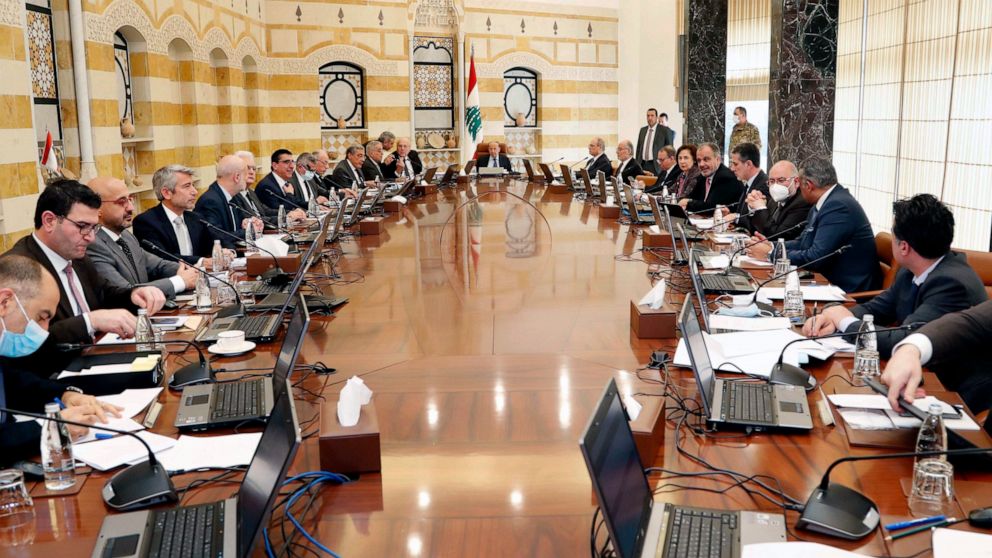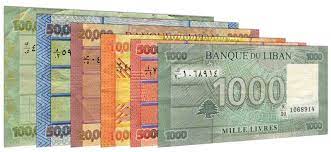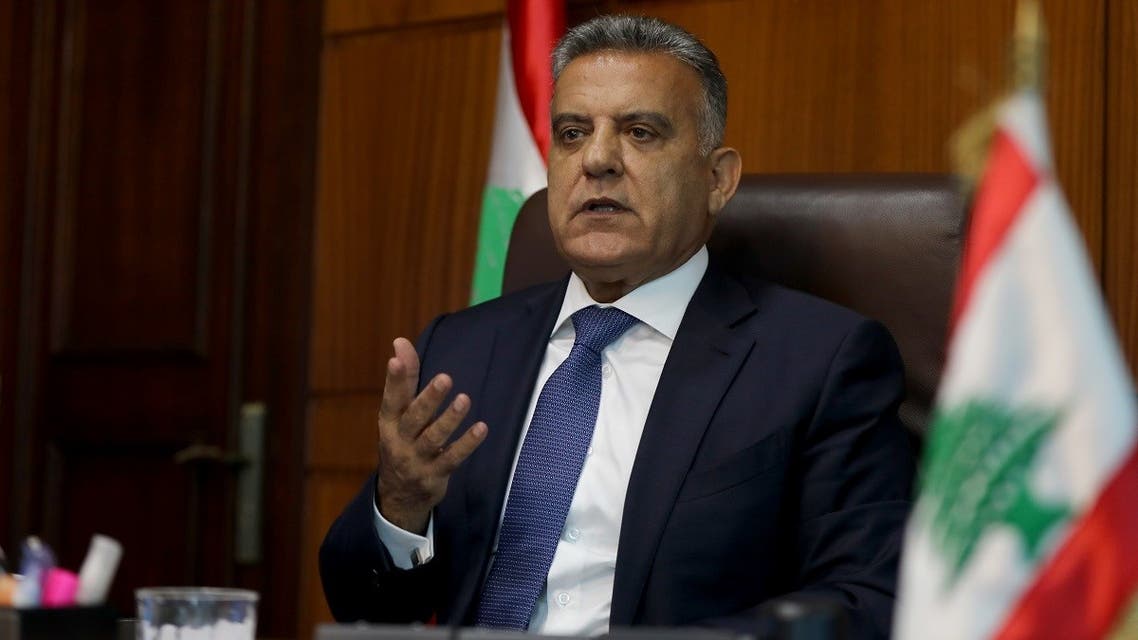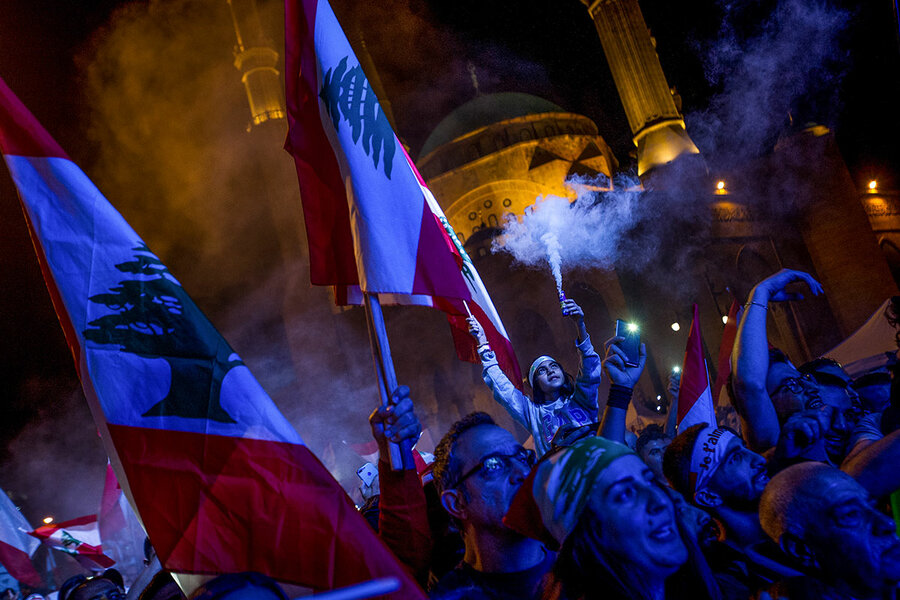
By EPHREM KOSSAIFY -- arabnews.com -- NEW YORK: The UN Security Council on Wednesday welcomed the fact that parliamentary elections in Lebanon went ahead as planned on May 15, “despite challenging circumstances,” but called for the swift formation of a new, inclusive government and the “urgent implementation” of previously outlined economic reforms. In a joint statement, council members said that the reforms should include the adoption of “an appropriate” national budget for 2022 that will enable the speedy implementation of an agreement with the International Monetary Fund “to respond to the demands of the Lebanese population.” The country’s economy has been mired since August 2019 in a crippling crisis, during which the Lebanese pound has lost more than 90 percent of its value and more than three-quarters of the population have fallen into poverty.
Last month, Lebanon and the IMF had reached an agreement on a plan that could unlock about $3 billion of international funding over several years. However, the deal is subject to approval by the management and executive board of the IMF, and hinges on Lebanese authorities implementing a host of economic reforms, including the restructuring of the country’s collapsed banking sector, improved transparency, and unifying the multiple exchange rates that apply to the nation’s spiraling currency.

BEIRUT (AP) — Lebanon’s currency hit a new low Tuesday as deep divisions within the newly elected parliament raised concerns that political paralysis could further exacerbate one of the worst economic meltdowns in history. The legislature elected May 15 showed no clear majority for any group and a fragmented and polarized parliament divided between pro- and anti-Hezbollah lawmakers. The sides will likely find it difficult to work together to form a new government and enact desperately needed reforms. Among those elected to the 128-member parliament were 13 independents. They took part in the protest movement against Lebanon’s entrenched political class blamed for the crisis rooted in decades of corruption and mismanagement. This sets up a potential clash in parliament between the two camps, raising concerns of a protracted deadlock to form a new Cabinet desperately needed to resume negotiations with the International Monetary Fund over a bailout program.
On Tuesday afternoon, the dollar was selling at 34,000 pounds on the black market, surpassing the 33,000 pounds to the dollar recorded in January. The Lebanese currency was pegged at 1,500 pounds to the dollar for 22 years until the crisis erupted in in October 2019. Since then, more than 80% of the population has been plunge into poverty, suffering acute shortages in electricity, medicine and other necessities as central bank reserves dry up. The crisis has also triggered the biggest wave of emigration since the 1975-90 civil war. On Friday, Lebanon’s outgoing government approved a recovery plan for pulling the Mideast nation out of its economic meltdown. The development came during the Cabinet’s last official meeting before it becomes a caretaker government following the elections. The plan is a key IMF demand.

By Joyce Karam -- thenationalnews.com -- The head of Lebanon's main intelligence agency has held talks with senior US officials in Washington to discuss resuming negotiations with Syria on the release of American hostages, including Austin Tice. Maj Gen Abbas Ibrahim, who heads Lebanon's General Directorate of General Security, was flown to Washington on a private flight organised by the US government. He met with senior White House, State Department and intelligence officials in his first visit since President Joe Biden took office in January 2021. In an exclusive interview with The National on Tuesday, he said the release of Tice, a freelance journalist and former marine who disappeared while reporting in 2012, was a top item at talks.
Lebanon fosters unique role in freeing Western hostages “We discussed Mr Tice’s file and we agree that it has to make progress, but we have to see first how we can bridge the gap, how to bring the views closer between Washington and Damascus,” Maj Gen Ibrahim said. Maj Gen Ibrahim leads Lebanon’s most powerful security service after the military and has a reputation as a savvy negotiator who has helped to secure the release of US residents and citizens such as Sam Goodwin, a tourist who had been held in Syria, and Nizar Zakka, a Lebanese businessman with US permanent residency who was released from Iranian custody in 2019. He also successfully mediated the release of Canadian tourist Kristian Lee Baxter in 2019 after he was detained in December 2018 by Syrian authorities while on holiday. There is now the possibility that negotiations will pick up from where they left off at the end of former president Donald Trump's term in November 2020. “We came very close during Mr Trump,” Maj Gen Ibrahim said.

By Scott Peterson -- csmonitor.com -- With a Lebanese flag draped over her shoulders, and optimism for political change filling her heart, Nisrine Hammoud joined hundreds of thousands of her fellow citizens on the streets during Lebanon’s “October Revolution” in 2019. “We feel like we are alive again,” she told the Monitor late one night at Beirut’s Martyrs’ Square back then, as protesters demanded the toppling of a political class renowned for corruption, and a total uprooting of the entrenched sectarian system that was leading to state collapse. An election was the “only chance” to make such change, Ms. Hammoud said. “It’s up to us. It’s up to the people to decide if they are going to go back to their old ways, or we are going to go forward.”
WHY WE WROTE THIS
Changing an entrenched system requires energy. While some in Lebanon voted last week to break with the past, most still voted for sectarian parties, an indication of fear and fatigue. That election finally came May 15, but with mixed results for activists like Ms. Hammoud. Pro-change candidates won a dozen or more of the 128 seats in Parliament, and Iran-backed Hezbollah and its allies lost their majority, dropping from 71 to 58 seats. The result outstripped modest predictions for anti-establishment candidates, and so was lauded as a “breakthrough” by some Lebanese media. But it also showed the challenges of changing the country’s baked-in sectarian system at a time when people are worn down by the demands of survival. Indeed, popular disgruntlement has grown even more widespread following the Beirut port explosion in August 2020, and the further disintegration of the economy and services that has now left more than 70% of Lebanese living below the poverty line.
Khazen History


Historical Feature:
Churches and Monasteries of the Khazen family

St. Anthony of Padua Church in Ballouneh
Mar Abda Church in Bakaatit Kanaan
Saint Michael Church in Bkaatouta
Saint Therese Church in Qolayaat
Saint Simeon Stylites (مار سمعان العامودي) Church In Ajaltoun
Virgin Mary Church (سيدة المعونات) in Sheilé
Assumption of Mary Church in Ballouneh
1 - The sword of the Maronite Prince
2 - LES KHAZEN CONSULS DE FRANCE
3 - LES MARONITES & LES KHAZEN
4 - LES MAAN & LES KHAZEN
5 - ORIGINE DE LA FAMILLE
Population Movements to Keserwan - The Khazens and The Maans
ما جاء عن الثورة في المقاطعة الكسروانية
ثورة أهالي كسروان على المشايخ الخوازنة وأسبابها
Origins of the "Prince of Maronite" Title
Growing diversity: the Khazin sheiks and the clergy in the first decades of the 18th century
Historical Members:
Barbar Beik El Khazen [English]
Patriach Toubia Kaiss El Khazen(Biography & Life Part1 Part2) (Arabic)
Patriach Youssef Dargham El Khazen (Cont'd)
Cheikh Bishara Jafal El Khazen
Patriarch Youssef Raji El Khazen
The Martyrs Cheikh Philippe & Cheikh Farid El Khazen
Cheikh Nawfal El Khazen (Consul De France)
Cheikh Hossun El Khazen (Consul De France)
Cheikh Abou-Nawfal El Khazen (Consul De France)
Cheikh Francis Abee Nader & his son Yousef
Cheikh Abou-Kanso El Khazen (Consul De France)
Cheikh Abou Nader El Khazen
Cheikh Chafic El Khazen
Cheikh Keserwan El Khazen
Cheikh Serhal El Khazen [English]
Cheikh Rafiq El Khazen [English]
Cheikh Hanna El Khazen
Cheikha Arzi El Khazen
Marie El Khazen